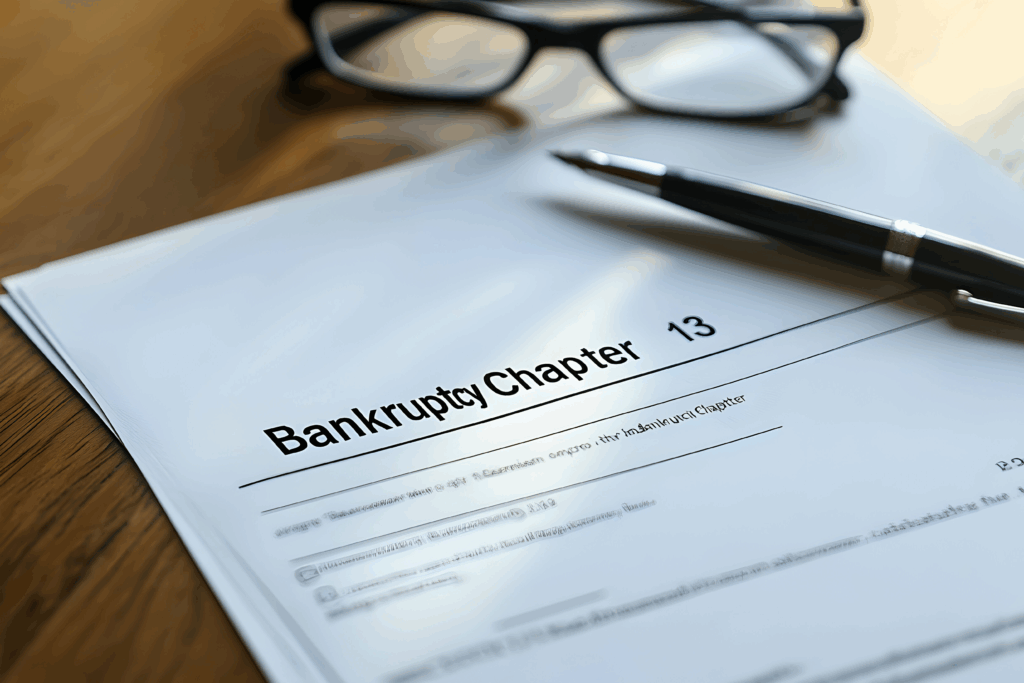Difference Between Debt Consolidation and Chapter 13 Bankruptcy


For anyone dealing with debt and looking for a way out, knowing where to turn to for help isn’t always easy. But learning the difference between debt consolidation and Chapter 13 bankruptcy can help you understand your options more clearly.
Yes, both can be helpful when you’re trying to get out of debt or reduce what you owe. But they don’t work the same way. Each comes with very different costs, risks and long-term effects.
One might give you more control and help you lower your monthly payments. The other puts your finances under the supervision of the court and sets a strict repayment plan. That’s why you need to understand the pros and cons before choosing a plan that can impact your finances long-term.
This article walks you through how each path works, what qualifies you, what to expect and which one might fit your situation best.
Chapter 13 bankruptcy is a legal process where you work with the court to create a payment plan that lasts three to five years. You don’t erase your debt instantly. Instead, you agree to pay a portion of what you owe based on your income and expenses.
During that time, creditors must stop collection efforts, including lawsuits and wage garnishments. You’ll still pay some debts, like your mortgage or car loan, to keep those assets. But unsecured debts like credit cards might get reduced.
If you complete the payment plan, some of your remaining debt may be forgiven. But keep in mind, the court will be involved every step of the way.
You’ll need to follow a set budget and regularly report your income and spending. Chapter 13 bankruptcy stays on your credit report several years. So it could impact your ability to borrow for a while. But for many, it’s a structured way out when there’s no room left to breathe.
Unlike other types of bankruptcy, Chapter 13 bankruptcy involves a court-approved repayment plan, so you must meet some basic financial and legal requirements to qualify. This includes having a steady source of income and filing all required tax returns.
Your total debt must also stay within federal Chapter 13 debt limits to be considered eligible. This currently allows up to $526,700 in unsecured debt like credit cards or medical bills and $1,580,125 in secured debt like mortgages or car loans, according to the United States Court.
If you owe more than that, you may not be eligible and might have to look at other bankruptcy options. These limits are updated regularly, so it’s important to check the current numbers or speak with a qualified bankruptcy attorney to be sure.
Unlike Chapter 13 bankruptcy, debt consolidation doesn’t go through the courts. Instead, it’s a way to combine several debts into one new loan, usually with a lower interest rate.
You still owe money, but now it’s in one place, which can be easier to manage. Many people use it to handle credit cards, medical bills, or personal loans. You apply for a new loan through a bank or online lender, use it to pay off your other debts and then focus on just one payment going forward.
To qualify for debt consolidation, lenders usually look at your income, credit score and overall debt-to-income ratio. Some lenders offer consolidation loans to borrowers with less-than-perfect credit, but rates are often higher.
Some lenders might also ask for proof of income or employment to ensure you can afford monthly payments. This is especially true if you’re applying for debt consolidation without collateral.
With no asset to back the loan, lenders need more proof that you can repay. The biggest risk with this kind of loan is falling behind on the new payments. You might not lose your house, but your credit will take hit.
If you’re applying for a balance transfer, you’ll likely need good credit to access a high enough credit limit.
If you’re trying to get out of debt, you’ve probably heard different opinions about how debt consolidation and Chapter 13 bankruptcy can help people regain control. The two options may seem similar, but the way they work and what they mean for you is very different.
One offers a way to manage debt without court involvement. The other relies on legal steps to pause collections and setup a payment plan. So which is better between the two? Everyone’s financial situation is different. Choosing between bankruptcy and debt consolidation depends on your credit, income, debt and assets.
Debt consolidation takes your existing debts, like credit cards or medical bills, and rolls them into one new loan. The goal is to lower your interest rate, simplify your payments and make the debt easier to manage over time. You still owe the full amount, though—there’s no debt forgiveness involved.
Chapter 13 bankruptcy, on the other hand, is a legal process. It puts a pause on collections and creates a court-approved repayment plan that usually lasts three to five years. Depending on your income and situation, you might only pay back a portion of what you owe. Once your plan is complete, the remaining debt may be discharged. So in some cases, yes, Chapter 13 bankruptcy may result in partial debt forgiveness, while debt consolidation does not.
If neither consolidation nor bankruptcy feels right, you may want to look into other forms of debt relief to avoid falling deeper into financial trouble. Some people consider debt settlement options to help them reduce what they owe and pay off their debt quickly.
The process may involve negotiating directly with creditors to accept less than what you owe, often in a lump sum. It may be a bit risky, though, as you need cash on hand, and your credit score may take a hit. But for some, it offers a faster resolution, especially when the debt is already in collections.
Others work with credit counseling services to set up repayment plans that don’t require a new loan or a bankruptcy filing. These counselors can sometimes negotiate lower interest rates or waived fees.
While these solutions aren’t perfect and may impact your credit, they can give you more flexibility and help you move forward without court proceedings.
There’s no quick fix when it comes to getting out of debt. What matters most is choosing the option that fits your life and helps you feel more in control.
If your income is steady and your debt is still manageable, consolidation might help you stay in control without going through the court. But if you’re facing lawsuits, foreclosure, or nonstop collection calls, Chapter 13 might offer the protection you need to catch your breath and regroup.
Both routes come with pros and cons. Understanding the difference between debt consolidation and Chapter 13 bankruptcy can help you make the right choice without guesswork.
Before jumping in, ask yourself: Can I stick with the plan? Will this make things feel more manageable? What do I need to protect most right now? The answers can point you in the right direction.

Blog Posts Archives UnfavoriteFavorite March 4, 2026 Religion & Society Program by Rabbi Elan Babchuck A guest blog post published...

The senior housing sector represents one of the most compelling opportunities in commercial real estate today. Here’s a staggering statistic:...

When money is tight and bills can’t wait, many people look for ways to access cash quickly. One option that often comes up is a...